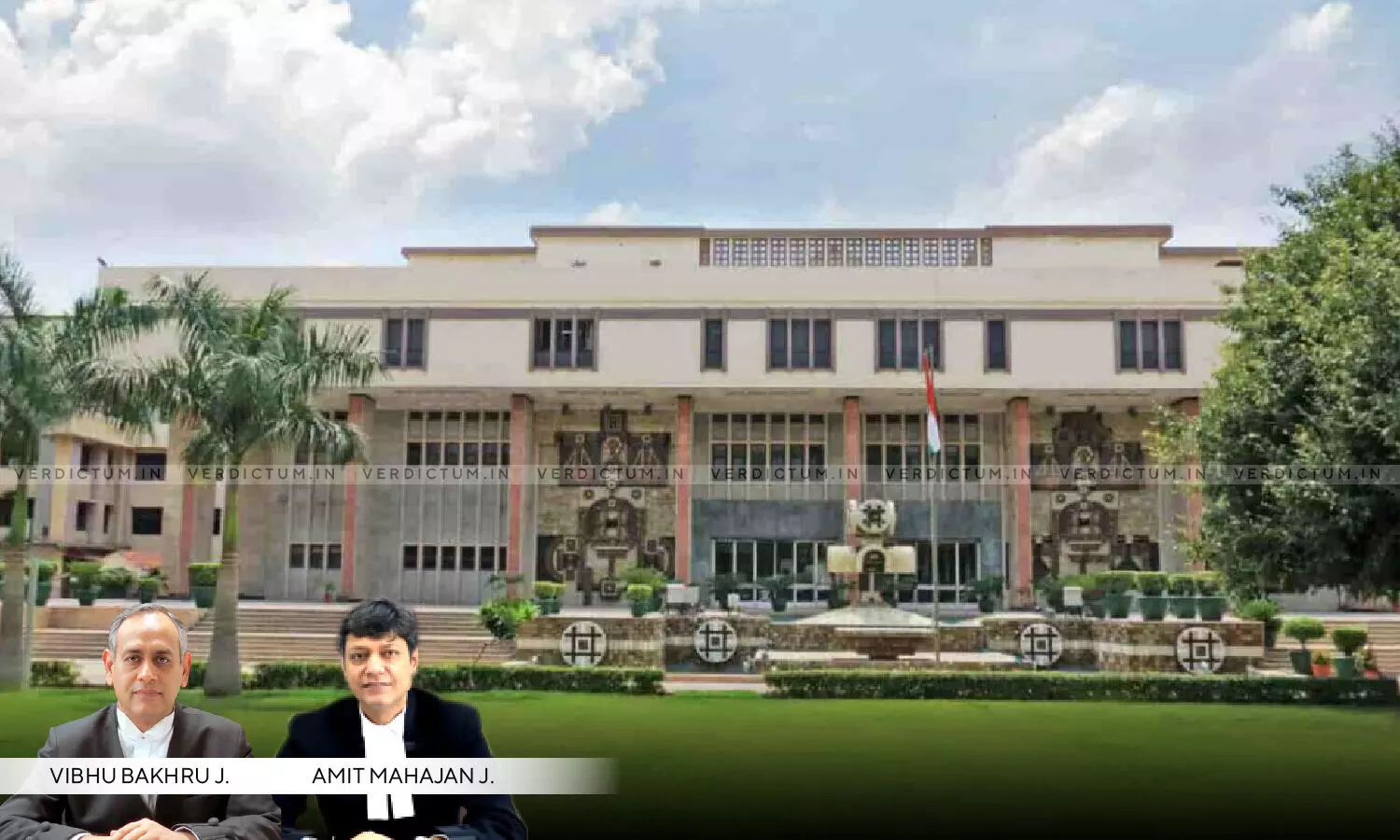
Subverts Integrity Of Selection Process: Delhi HC In Plea Challenging Award Of Additional Marks In DHJS Exam
 |
|The Delhi High Court while dealing with a Writ Petition under Article 226 challenging the award of extra marks in the Delhi Higher Judicial Services (DHJS) exam, called the action by DHJS as arbitrary and unsustainable in law.
The DHJS by notice awarded 1 additional mark in LAW-III and 0.5 marks in the General Knowledge paper to all the candidates. This impugned notice had been challenged by the Petitioner on the grounds of the said being arbitrary.
The Division Bench of Justice Vibhu Bakhru and Justice Amit Mahajan held that “There is no controversy that the DHC is fully empowered to determine the evaluation procedure. However, the procedure to be adopted is necessarily required to be for the purpose of ensuring uniform and fair evaluation. Such procedure cannot be evolved with the sole objective of including one or two additional candidates who had otherwise failed to qualify the examination, despite a fair and a uniform evaluation of the answer sheets.”
The Court further added that “The contention that the petitioner is precluded from raising any objections to the award of additional marks as he had participated in the examination is unmerited and cannot be accepted. This is not a case where the petitioner is challenging the evaluation procedure after having tacitly accepted the same by participating in the examination. The petitioner is not challenging the procedure as notified or as provided in the DHJS Rules. The petitioner’s challenge is in respect of the award of additional marks, which was not a part of the declared procedure.”
Senior Advocate Akhil Sibal appeared for the Petitioner while Senior Advocates Abhinav Vashisht and Sacchin Puri appeared for the Respondents.
In the case, the Petitioner appeared for the DHJS exam wherein he got rank 34. Only 33 candidates were selected. It was contended that the Respondent managed to qualify for the viva voice by scoring the minimum qualification marks in the main exam due to the awarding of 1 extra mark by the DHJS.
Further, Petitioner also challenged the appointment of Respondent No.5 wherein it was contended that the Respondent worked in the Legal Department of Law Department, and therefore would not be qualified to practice as an advocate under the BCI rules, and thereby, not fulfill the prescribed criteria set by the DHJS exam rules.
The Court while dealing with the first issue of awarding said that "In the present case, there is no doubt that the additional marks have not been awarded pursuant to an exercise of normalization – that is, to counter the effect of erroneous questions, questions out of syllabus, strict evaluation of the answer sheets by examiners or any other systemic flaw in the evaluation process, that required rectification by the award of additional marks – but to include respondent no.3 and other candidates who had failed to qualify as the marks secured by them in Law-III paper and General Knowledge and Language paper were short by one mark or less. extra mark held that. It is not open for an examining authority to simply award grace marks because some candidates had failed to achieve the qualifying criteria “
Further, while dealing with the second issue of appointment of Respondent No.5, the Court said “It is important to note that respondent no.5 was not a salaried employee of the Department of Legal Affairs and he was engaged only on payment of professional fees. Income tax was deducted at source on the fees paid to respondent no.5 at the rates as applicable in respect of payment/credit of professional fees. The nature of services to be performed by respondent no.5 also clearly qualify as practice of law. Clearly, the object of Rule 49 of the Bar Council of India Rule is to ensure that an Advocate is a professional, whose independence is not compromised by an employee-employer relationship and he is engaged in the practice of law. We are of the view that this test would be fully satisfied in the case of respondent no.5.”
Accordingly, the High Court set aside the order of the DHJS and partly allowed the Petition.
Cause Title: Sudeep Raj Saini v. High Court of Delhi and Ors. [Neutral Citation No. 2023: DHC: 4661- DB]
Click here to read/download the judgment